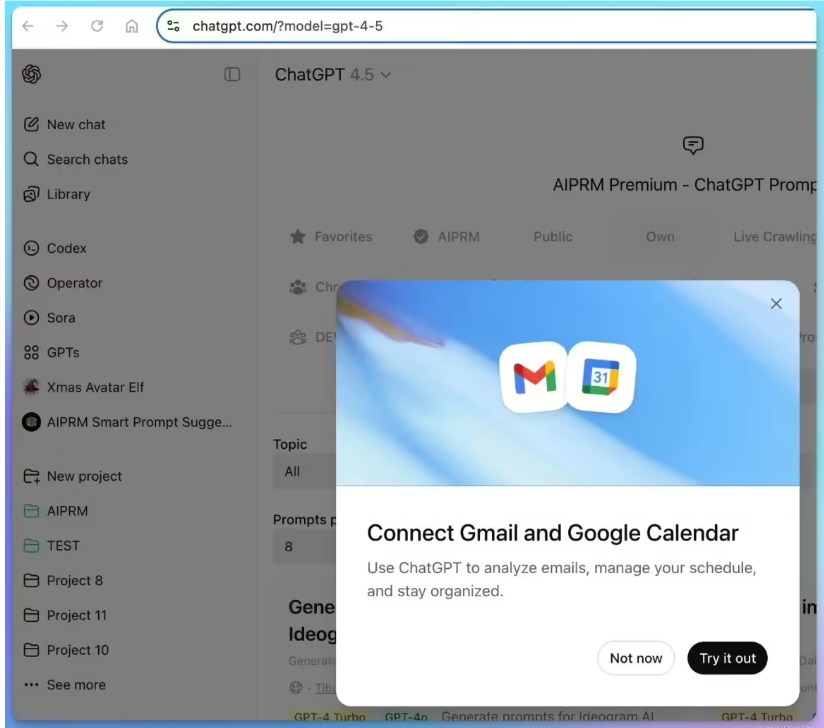OpenAI's ChatGPT has introduced an eagerly anticipated new feature during its gray-scale testing phase, deeply integrating Google's Gmail and calendar functions. This update allows ChatGPT not only to interact with users' emails but also to automatically generate replies based on email content and even organize them into outlines and to-do lists, providing great convenience for users' daily work.

According to the revelation from the source, Tibor, ChatGPT has already connected to Gmail. However, during the current testing phase, users need to use the deep research mode to access this function. In the future, when this integration is officially released, users will be able to let AI analyze and summarize email content through simple natural language instructions. Additionally, users can create calendar events directly in the conversation interface and synchronize them to their phones or computers, making work management more efficient.
This new feature marks OpenAI's push for ChatGPT towards higher-level development, transforming it from a mere question-answering tool into an intelligent information hub and daily work assistant. This update may also be closely related to ChatGPT's search function, indicating that AI assistants are moving towards more contextual understanding and proactive collaboration.
Although OpenAI has not yet announced the global launch time of this feature, it can be foreseen that the function will be officially launched to the public within the next 2 to 3 months. At that time, users will enjoy a more intelligent email management and calendar arrangement experience.
Through this new feature, users can not only improve work efficiency but also better manage their time, easily handling busy schedules. This update of ChatGPT is sure to attract more user attention and further enhance its position in the field of smart assistants.
Key points:
📧 ChatGPT deeply integrates Google Gmail and calendar functions, supporting automatic replies and schedule creation.
🗓️ Users can analyze email content and organize to-do lists through natural language instructions.
🚀 The function is expected to be officially launched within 2-3 months, helping to boost work efficiency.
